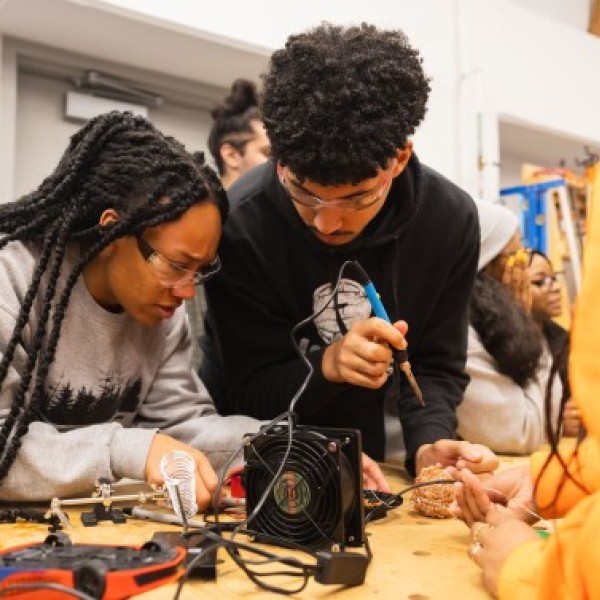Olena Vatamaniuk, associate professor of crop and soil sciences in the College of Agriculture and Life Sciences, has been honored with the Schwartz Research Fund for Women in Life Sciences, endowed by Joan Poyner Schwartz ’65 and Ronald H. Schwartz ’65.
The annual awards support women life scientists conducting innovative, risk-taking research.
“The awards represent a wonderful opportunity for alumni to support women in science doing cutting-edge research,” said Yael Levitte, associate vice provost for faculty development and diversity.
Vatamaniuk studies common and unique mechanisms used by different plant species and worms for maintaining balance of micronutrients such as iron, copper, and zinc, and detoxification of the harmful element cadmium. Her lab uses functional genomic tools to understand how these metals are transported into the cell and how their transport is controlled, with implications for plant growth, development, yield, food safety, and human health.
Vatamaniuk earned her doctorate at Lviv State and Kyiv State universities in Ukraine in 1997. She did her postdoctoral studies at the University of Pennsylvania before joining Cornell’s faculty in 2005.
Two other Cornell University professors received this award: Margaret Bynoe, associate professor of immunology in the College of Veterinary Medicine; and Carolyn Sevier, assistant professor of molecular medicine, also in the veterinary college. All received awards of $15,000.
Bynoe’s lab focuses on understanding how the immune system works and the cellular and molecular basis of immune defects that occur in autoimmune diseases and cancer. Her lab also investigates development of immune-based therapies to potentially treat these disorders. Recent work has focused on delivering therapies across the blood-brain barrier.
Bynoe received her doctorate from Albert Einstein College of Medicine in 1999. She received postdoctoral training and became an associate research scientist at Yale University School of Medicine before she joined Cornell in 2005.
Sevier’s research examines cellular pathways that work to alleviate oxidative stress in cells. Her lab studies the molecular mechanisms that regulate protein folding and stress pathways using molecular, genetic and biochemical techniques.
Sevier completed her doctorate at Johns Hopkins University School of Medicine. After postdoctoral training at the Massachusetts Institute of Technology, she joined Cornell’s faculty in 2010.
Three additional Cornell researchers were awarded travel grants from the fund.
Anna Thalacker-Mercer and Marla Lujan, both assistant professors of nutritional sciences in the College of Human Ecology, and Jeongmin Song, assistant professor of microbiology and immunology in the College of Veterinary Medicine, each received $1,500 travel grants to support conference travel for graduate students in each of their labs.
Ron and Joan Schwartz are retired from the National Institutes of Health.
“They really want to encourage risky new strands of research that will help women researchers get outside funding,” Levitte said.




